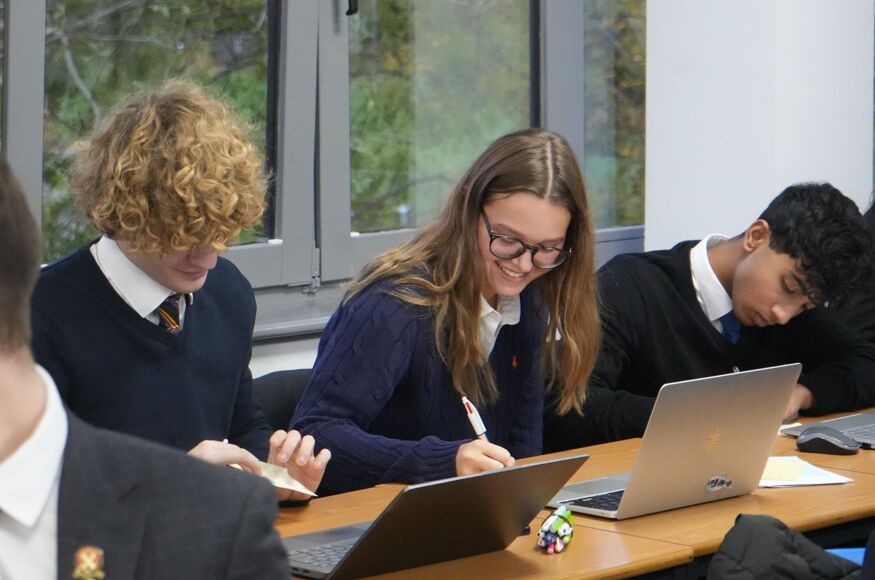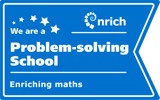- Home
- News and Events
- Teaching and Learning Blogs
- The Teaching & Learning Summit 2025
The Teaching & Learning Summit 2025

The Teaching & Learning Summit is a yearly conference for teachers and school leaders to learn about the latest in evidence-informed education from top experts. Hosted each year in the stunning Jafar Hall at Eton College, it is an incredible chance to discover useful research, explore its application in the classroom, and meet other evidence-engaged educators. Mike, Nick, and Soph attended the Conference back in February and shared their thoughts below.
If you are interested in watching some of the sessions from past Summits, then these can be found here: https://www.innerdrive.co.uk/teaching-and-learning-summit/recordings/
Likewise, if you are interested in attending a T&L conference, then the next available opportunity is the Festival of Education (3-4 July). Contact me or Gareth for more details.
The Knowledge vs. Skills Debate (Nick)
Though Daisy Christodoulou is more well known for her work on comparative judgement and the enticing website ‘No More Marking’, she presented a fascinating talk at the Inner Drive conference about the knowledge vs skills debate. Her argument reaffirmed a point that has increasingly influenced my teaching: knowledge is the foundation upon which all skills are built. While skills such as problem-solving, critical thinking, and analysis are often touted as independent capabilities they are instead entirely dependent on a strong knowledge base.
A common misconception in education is that skills can be taught in isolation. However, Christodoulou’s talk highlighted how skills are, in fact, the product of extensive domain-specific knowledge. Take problem-solving, for instance. It is often viewed as a transferable skill, yet a pupil’s ability to solve a problem is constrained by the depth of their knowledge in the subject area.
Without sufficient background knowledge, problem-solving becomes an illusion rather than a skill that can be attained.
The effect of methp and psilocybin on mood vs placebo treatment in rats. (Cheg 2025)
I will use something I teach regularly, interpretation of scientific studies to illustrate this point. Suppose pupils are presented with data from an experiment investigating the effects of a drug in rats. (See Figure 1).
At first glance, evaluating the study may seem like a skill-based exercise. Pupils are required to analyse the data, consider statistical significance, and critique the experimental design. However, true evaluation is only possible if pupils already possess key background knowledge: they need to understand that findings in animals do not always translate to humans, grasp the importance of sample size, comprehend how to assess statistical significance, interpret graphical data accurately, and appreciate concepts such as placebos and control groups. Without this foundational knowledge, it is impossible to evaluate these results or form a conclusion.
This has influenced my teaching and medium-term planning. I have increasingly moved away from dedicating standalone lesson time to developing skills like data analysis or graph interpretation. Instead, I integrate these aspects within the context of the topic being studied. For instance, rather than treating data evaluation as an abstract skill, I present pupils with compelling case studies and real-world examples that require them to apply their growing knowledge base to assess information critically. By doing so, pupils develop these skills as a byproduct of engagement with content rather than through artificial exercises.
Christodoulou’s argument reinforces the importance of a knowledge-first approach to teaching. Rather than attempting to teach skills in isolation, we should focus on building a robust foundation of subject-specific knowledge that naturally enables pupils to think critically and solve problems effectively. By embedding skills within a rich knowledge framework, we ensure that pupils are not just performing an illusion of thinking but are genuinely developing the ability to engage meaningfully with complex ideas.
Modelling Behaviours and Creating Positive Learning Environments (Soph)
‘Attention is a finite resource, much like currency…’
Blake Harvard’s analogy highlights the value of student focus - but how do we make the most of it? Should we aim to extend attention spans, or is it about spending this 'currency' more wisely for maximum impact?
A key reflection from the conference was how inattentiveness spreads. If students see their peers disengaged and no action is taken, they may assume the material is not important. This can lead to less engagement, poorer classwork and a general drop in enthusiasm for learning. It made me think: Do teachers always model the attentiveness we expect? Are we fully engaged in assemblies and PSHE sessions, or do we unintentionally signal that these moments are not valuable? Ultimately, we set the tone. If we want students to form good learning habits, we need to embody them ourselves. One simple yet meaningful shift could be ensuring that teachers remain fully present throughout each lesson - checking in with pupils, avoiding emails, and staying focused when others are speaking.
Beyond classroom engagement, the summit reinforced the need for continuous professional development (CPD). If we expect students to be lifelong learners, we must lead by example. Some of the most valuable sessions came from leading voices in education. Dr Faria Sana’s discussion on Interleaving vs. Blocking shed light on structuring lessons for maximum retention. Meanwhile, Jenny Webb’s session highlighted an often-overlooked CPD opportunity - learning from our colleagues. The best professional development may not always come from external courses but from recognising and sharing the expertise already within our schools. What if we had more opportunities to spotlight what different teachers do exceptionally well? A culture of open learning among staff could drive significant improvements in teaching practice.
The summit was a powerful reminder of the behaviours we model and the environments we create. Whether fostering engagement in students, refining our own learning habits, or strengthening CPD within our schools, these small shifts could make a lasting impact on teaching and learning.
Reflections on Behaviour, Attention, and Leadership (Mike)
Laura McInerney, in charge of Teacher Tapp, the platform that gathers data from teachers across the sector, revealed some interesting snapshots for consideration taken from the teacher responses. She found that behaviour impedes learning in a third of lessons, however, it does get better over time, as teachers with 10-20 years of experience report that lessons are less disrupted. She also referred to happiness in the profession and caught the audience’s attention by declaring that the happiest staff members are indeed Head Teachers! Despite the obvious stress and workload, this greater happiness was attributed to autonomy and control when making decisions. When presenting the priority of reducing workload, the audience was warned against the pitfall of diluting opportunities for quality relationships by working behind screens or even using Form time to catch up with marking.
Blake Harvard, author of Do I have your attention?, says that attention is key to success, but it’s limited, rather bit like money, or energy ie. we choose how to spend it and when it’s gone, it’s gone. In a classroom, he warned that teenage inattention spreads, whereas attentive behaviour does not permeate the room so easily. He warned about the three main consequences of inattention, according to his research:
-
low motivation
-
less importance given to the material taught
-
lower grades.
On the one hand, body language reveals lack of attention, such as slouching, looking blank in a lesson, or giving in to distractions such as phones/laptops. On the other hand, it is possible to train one’s positive attention by intentionally responding with agreeable body language, such as nodding, learning forward, and taking notes.
Compassionate Leadership Matrix
Sufian Sadiq, of the Chiltern Learning Trust delivered a presentation entitled ‘Delivering Good Eggs’, which was an inspirational final talk of the day emphasising the importance of relationships among colleagues and managers. He defined good teacher characteristics in two ways: those that like children and those that take risks. Interestingly, the two stand-out characteristics of good leaders are those responsible for people and being committed to developing others. He reminded the audience that excellent leaders take people with them and must have great character. He states that to improve schools, it’s vital to retain and develop good teachers. However, good teachers are leaving the profession due to poor leadership.
Great emphasis was placed on being a role model by having high standards. Simple habits are crucial: saying “good morning”, picking up litter, learning names (including family names of colleagues), and checking in with an absent or ill colleague. Such habits amount to creating human-centred leadership based on strong values and a culture of humanity and wisdom. When commenting on relationships with pupils, he encouraged the audience not to `be soft`: don’t compromise on values and ambition for young people. We must ask ourselves when interacting and managing pupils: is this good enough for my children?
In short, leaders must be great people, and great people have to have high standards by modelling the best behaviour in our relationships.
/2129213531.png)
/2877917118.png)







